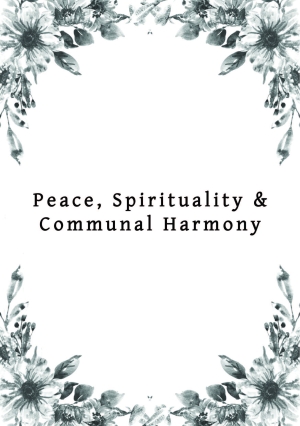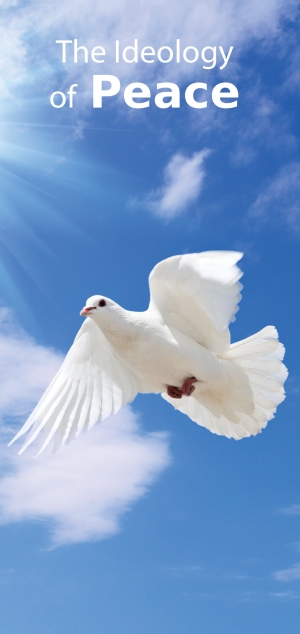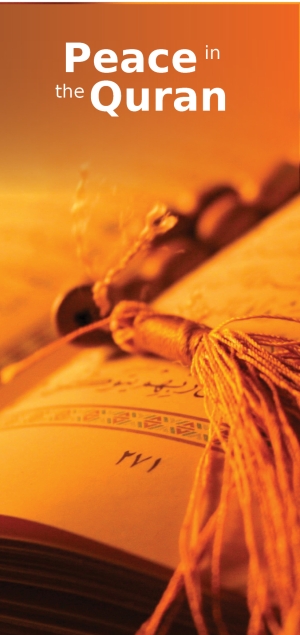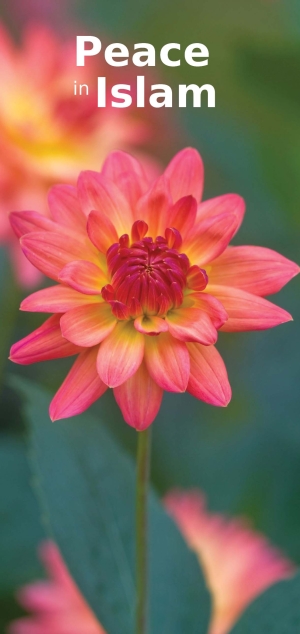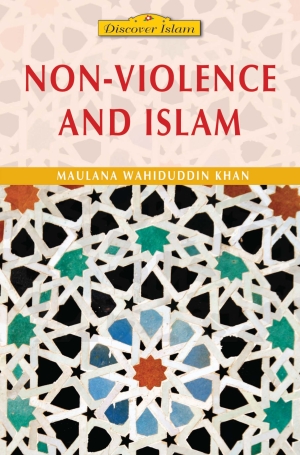Scholars have defined peace as the absence of war. However, putting an end to war and violence is only its initial phase. Whenever peace prevails in a society in the real sense, its members will channel their energies towards constructive activities. Peace in a society can be likened to removing a dam from a river. All life’s activities will be set in motion with no obstruction, propelled by human nature itself. They come to a halt only when the artificial barriers of war and violence are placed before them. From the point of view of its result, peace is entirely like an opening of all the doors of life.
Peace is a complete ideology. Peace is the master key that opens all doors and paves the way for the success of sincere efforts in all spheres. The ideology of peace in Islam is based on how the Prophet of Islam arrived at the Hudaybiyyah Treaty in 629 AD. When we establish peace unilaterally, by becoming tolerant and accepting peace for the sake of peace, it opens opportunities by creating favourable conditions, which enable people to strive towards and attain their objectives. When people avail of these opportunities, they eventually obtain justice and bring many other constructive initiatives to fruition. In a state of peace, we can go about any task: it is impossible to act constructively without peace.
Featured Articles
Featured Videos
FAQs
According to a hadith, the Prophet of Islam defined a believer thus: “A believer is one from whom people are safe as regards their lives and property.” (At-Tirmizi, An-Nasai, Ibn Majah, Musnad Ahmad).
There are two ways of leading one’s life in society. One is to live peacefully among one’s fellow men. The other is to keep quarrelling with others. According to this hadith, the way of the faithful is to live as peaceful citizens in society. No one should pose any danger to others’ lives, property or honour. In no circumstances, should one take the way of violence.
How should life be led so that the members of a society remain safe and secure from others’ injustices? It is to maintain the way of moderation, irrespective of there being causes for complaint. They should be able to bury their complaints in their own hearts instead of pouring them out upon others. A society in which such self-control is exercised is one in which its members can enjoy a feeling of security. Indeed, a peaceful society is the ideal framework for positive human development. On the contrary, a society fraught with violence is an animal, not a human society. It can offer little hope of the realization of individual human potential.
The love of peace is a noble human virtue, whereas the love of violence brings the human being down from a high ethical plane to the level of brutishness.
Source: The Ideology of Peace
Man’s greatest faculty is his ability to think rationally. Building a peaceful society requires the re-engineering of the mind. This task can be carried out only through education—more through informal education than formal education. By informal education, I mean gaining knowledge through the media, literature, seminars and conferences, dialogue and discussion, and so on.
Here, I am not just theorizing about peace: I have experimented with it in practice. The venue of this experiment was Kashmir. I have been working towards inculcating peaceful thinking among Kashmiris since 1968, and I am still continuing with my efforts. There has been a sea-change as a result of this movement, and now, in almost every house in Kashmir the peace-promoting literature of our mission is read.
In 2011 we organized a meeting of those Kashmiris who are acquainted with our ideas. On this occasion, someone representing a group of Kashmiris said in the course of conversation: ‘We have travelled a long way from October 1989 to October 2011. Formerly, we used to throw stones at the Indian army. Now, we present them with literature about peace.’
Kashmir, which after 1947 was continually engaged in militancy, has now almost become a peaceful state. If there is any news of attack or violence from Kashmir, it is not due to the local Kashmiris, but is the result rather of a proxy war conducted from outside.
The above example of bringing about ‘Peace through Education’ can be experienced everywhere. The most effective way of bringing about peace is only one—and that is, to educate people’s minds along peaceful lines.
The best way to bring about change in society is through education.
Source: The Ideology of Peace
On the subject of jihad, the Quran addresses the believers thus: “Do great jihad with the help of the Quran”. (25:52)
As we know, the Quran is a book, an ideological book. It is not a gun or a sword. Therefore, ‘jihad’ by means of the Quran can only mean conveying the ideas of the Quran to the people. This implies that we should struggle peacefully to make the ideas of the Quran understandable by presenting them in the form of logical arguments.
The above-mentioned verse makes it clear that what is called jihad in Islam entails only the kind of peaceful struggle which has nothing to do with violence. The Arabic word ‘jihad’ is derived from the root ‘juhd’ which means to strive, to struggle, that is, to exert oneself to the utmost to achieve one’s goal. This is the original meaning of ‘jihad’ in Arabic.
This verse shows that peaceful effort is vastly superior to violent effort. Whenever one opts for the violent method, the sphere of one’s efforts becomes very limited. In resorting to violence, only the sword and the gun are of avail, whereas by peaceful methods, all kinds of things may be utilized to achieve our objective. Even a pen in a closed room can serve a great purpose.
Source: The Age of Peace
Peace is essential for a better way of living—peace of mind, peace in the family and peace in nature. Today, in our modern, technological world, man apparently has access to everything he desires. In the absence of peace, however, everything has been rendered meaningless. What is needed to redress the balance is love, compassion, tolerance, forbearance and the spirit of co-existence.
How can we attain peace? The formula is very simple. Take your share without usurping that of others. Fulfill your needs without depriving others of theirs. Satisfy your desires without thwarting others and fulfill your ambitions without denying others the right to do likewise. In short, solve your own problems without creating problems for your fellow creatures. Peaceful co-existence is the only way of existence in this world.
However, a peaceful life can be achieved only when human beings learn what their limitations ought to be. According to the Divine law, you can take from the world whatever will satisfy your need—not your greed. You may do business with others, but you may not exploit them. You may also establish your individuality, but not at the cost of the family and society. In daily existence, you may lead your life by maintaining social traditions and not by destroying them. You have the freedom to lead your own life, but by caring in the process for the rest of your society and not by neglecting it. Resources may be utilized for the benefit of humanity, but not for the sake of destruction. You are free to use peaceful methods, but you are not entitled to use violence. You can make use of nature, but only by maintaining its balance: the equilibrium of nature must never be disturbed. You have the freedom to use nuclear energy for peaceful purposes, but not to manufacture destructive weapons. You are at liberty to nurture feelings of love and compassion, but not to give way to hatred and prejudice. You are free to fulfill your physical desires, but not by spiritually killing your soul. In short, you have the freedom to enjoy life by sharing with others, but certainly not by eliminating them.
Source: The Ideology of Peace




















